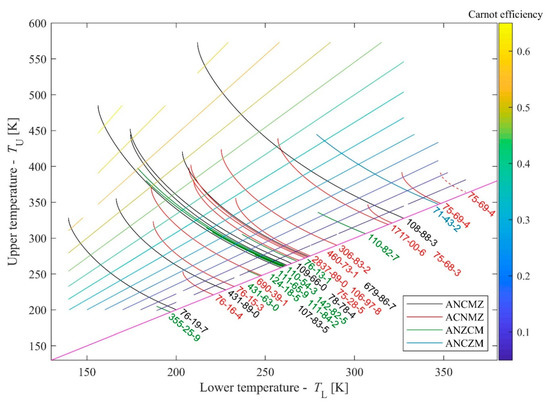Thermodynamic Selection of the Optimal Working Fluid for Organic Rankine Cycles (MDPI)
By Attila R. Imre, at al. Department of Energy Engineering, Budapest University of Technology and Economics
A novel method proposed to choose the optimal working fluid—solely from the point of view of expansion route—for a given heat source and heat sink (characterized by a maximum and minimum temperature). The basis of this method is the novel classification of working fluids using the sequences of their characteristic points on temperature-entropy space. The most suitable existing working fluid can be selected, where an ideal adiabatic (isentropic) expansion step between a given upper and lower temperature is possible in a way, that the initial and final states are both saturated vapour states and the ideal (isentropic) expansion line runs in the superheated (dry) vapour region all along the expansion.
Problems related to the presence of droplets or superheated dry steam in the final expansion state can be avoided or minimized by using the working fluid chosen with this method.
Results obtained with real materials are compared with those gained with model (van der Waals) fluids; based on the results obtained with model fluids, erroneous experimental data-sets can be pinpointed. Since most of the known working fluids have optimal expansion routes at low temperatures, presently the method is most suitable to choose working fluids for cryogenic cycles, applied for example for heat recovery during LNG-regasification.
Some of the materials, however, can be applied in ranges located at relatively higher temperatures, therefore the method can also be applied in some limited manner for the utilization of other low temperature heat sources (like geothermal or waste heat) as well.
Read More........
Thermodynamic Selection of the Optimal Working Fluid for Organic Rankine Cycles. By Attila R. Imre, Réka Kustán and Axel Groniewsky. Energies 2019, 12(10), 2028; https://doi.org/10.3390/en12102028
